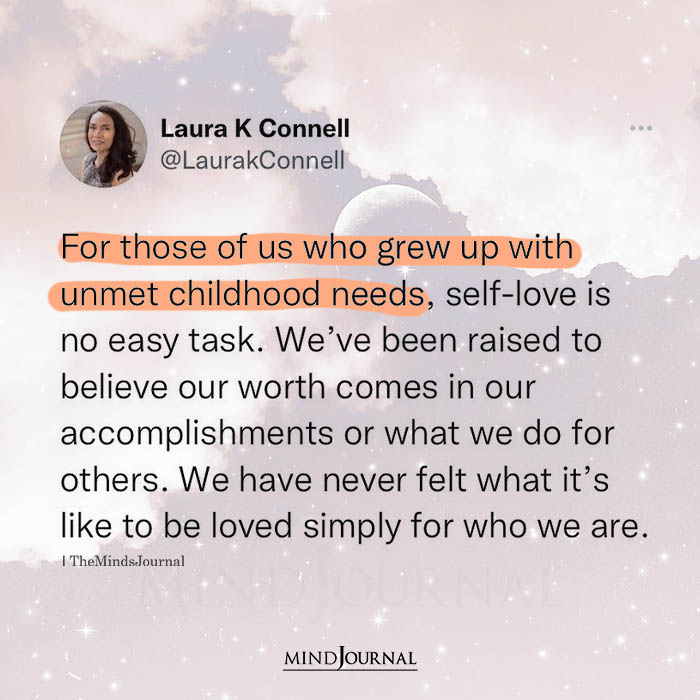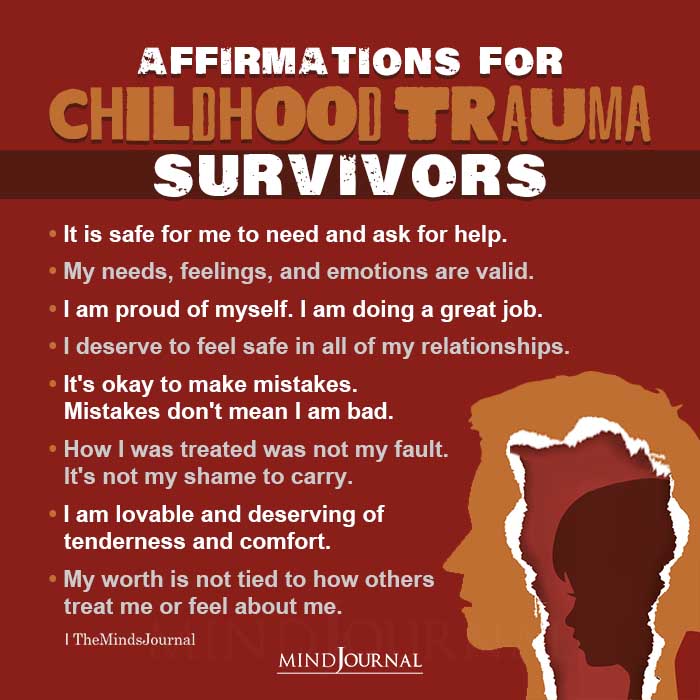Anyone who has been through emotional neglect in childhood knows that it never leaves you; it haunts you for the rest of your life. It’s like an invisible wound, that may not leave invisible scars, but it can shape you in ways you might not even notice.
Maybe it was the feeling that something’s missing from your childhood, but you couldn’t quite put your finger on it. Well you are not alone. Many people experience emotional neglect without even realizing it.
Today we are going to talk about the impact of emotional neglect in childhood, and what are the symptoms of childhood emotional neglect in adults. This isn’t just another list – it’s a chance to understand yourself and your emotions better.
Related: Love Starved: How Childhood Emotional Neglect Breaks You As An Adult
What Is Childhood Emotional Neglect?
Childhood emotional neglect is when a child’s emotional needs aren’t met by their parents or caregivers. It’s not really about what happens, but rather it’s about what doesn’t happen – a lack of love, attention and validation.
Imagine growing up feeling like your feelings don’t matter, or you don’t matter, or that you had to handle tough situations all on your own, when it should have been your parents doing it.
It’s like having an empty emotional tank. Emotional neglect in childhood can leave permanent effects, making it hard for you to connect with your own feelings or others later in life. It’s an invisible issue, but understanding it can help you fill in those emotional gaps.

8 Signs Of Emotional Neglect In Childhood: When You Were Made To Feel Like Nothing
1. You feel easily overwhelmed in situations.
People who experience emotional neglect in childhood, often grow up without learning how to manage their emotions in a healthy way. This makes you feel easily overwhelmed in stressful situations and because you haven’t developed the right coping mechanisms others might have.
Picture being in a crowded room and feeling like every sound is too loud, every movement too fast – everything just feels too much. This can lead to anxiety and a sense of being out of control.
This good news is that recognizing this pattern is the first step towards learning how to manage your feelings better, and finding ways to stay calm, even when things threaten to get overwhelming.
2. You often find yourself dissociating from affection.
Have you ever felt uncomfortable or detached when someone has tried to show you any form of love and affection? If your answer is yes, then this is another major sign of emotional neglect in childhood.
When a child grows up without enough emotional support, it can make receiving love and affection feel alien and scary. It’s like your brain is sending you alarm signals saying “I don’t what this is! I don’t know what’s going on! Please stop!”
This sort of disconnection can make navigating relationships tricky, as it’s naturally hard to bond when you don’t know how real love feels like.
3. You experience physical manifestations of emotional pain.
What are the symptoms of childhood emotional neglect in adults? Emotional neglect doesn’t just stay in your head – it can show up in your body too. Anyone who may have experienced this may have frequent headaches, stomach aches, or other unexplained aches and pains.
It’s like your body is trying to express the pain that your mind has been holding onto. Stress and emotional turmoil can take a real toll on physical health, leading to chronic issues.
Recognizing that these physical symptoms might be connected to emotional neglect is important. Addressing your emotional needs and learning healthy ways to cope can help alleviate some of the physical pain as well.
Related: 3 Lingering Challenges From a Difficult Childhood
4. You might struggle with substance abuse.
Do you resort to alcohol to numb your feelings? Do you feel like having a few drinks helps you cope with the demons in your head? Substance abuse can often be a way for people to cope with the pain and emptiness left by emotional neglect in childhood.
Drugs and alcohol can make you feel better, but only temporarily. Drugs and alcohol might temporarily numb the feelings of loneliness, worthlessness, or anxiety that come from growing up without adequate emotional support.
It’s like trying to fill a bottomless pit with something that gives you a fleeting sense of relief. However, the more you give into addiction, the more complications you will experience with your mental and emotional health.
5. You suffer from a fear of rejection.
Wondering what the impact of emotional neglect in childhood is? This! When children don’t receive the emotional validation they need, they grow up constantly seeking approval and fearing that they will be rejected if they show their true selves.
Imagine feeling like you are always on thin ice, afraid that one wrong move could make people turn away from you. Feels exhausting even thinking about it, doesn’t it?
This intense fear leads to people pleasing behaviors and avoiding situations, where rejection might be a possibility.

6. You show aggressive tendencies.
Aggression can be a surprising sign of emotional neglect in childhood. When your emotional needs as a child are not met by your parents, frustration and anger can build up within you, which sometimes manifests as aggression and aggressive behavior.
You feel like a pressure cooker who wants nothing more than to just let off some steam. This aggression might be directed at others or even yourself. This is often considered to be a defense mechanism to protect oneself from future hurts and pain.
Understanding where your aggression stems from can help you find healthier ways to deal with anger and frustration, leading to more positive relationships and communication.
7. You have difficulty with self-expression.
The impact of emotional neglect in childhood can be vast and can haunt you even in your adulthood. You grow up feeling like your feelings don’t matter, leading you to struggle with expressing yourself.
This can result in a lifetime of bottling up and supressing emotions and finding it hard to articulate what you truly feel.
It’s like you are trying to paint a picture without knowing how to use the colors, so you end up with something that doesn’t quite capture what’s inside. Over time, this can cause a lot of frustration and even grief within you. Not being able to say how you feel is one of the saddest things in life.
Related: 8 Things You Can Relate To If You Were Emotionally Neglected As A Child
8. You are obsessed with being perfect and an overachiever.
What are the symptoms of childhood emotional neglect in adults? This is a major one! Growing up without emotional support can lead to you constantly telling yourself that you need to prove yourself and your worth through achievements.
Perfectionism and overachievement have gradually become ways to gain the approval and validation that was missing in your childhood. It’s like you are trying to fill a void in yourself with multiple accomplishments and shining gold stars.
You constantly tell yourself that if you are perfect enough and if you are ambitious enough, then you will finally feel good about yourself, and you will get the love you have craved from your parents since you were a child.

Takeaway
The impact of emotional neglect in childhood can constantly make you feel like there’s something wrong with you or that you need to be better to get love. But no, my dear, that’s not how love works.
What you went through in your childhood doesn’t have to define the rest of your life. I know that sometimes that’s easier said than done, but trust me, you deserve so much more and only if you knew that you are going to get all the love you have been chasing your whole life.
It’s only a matter of time.










Leave a Reply